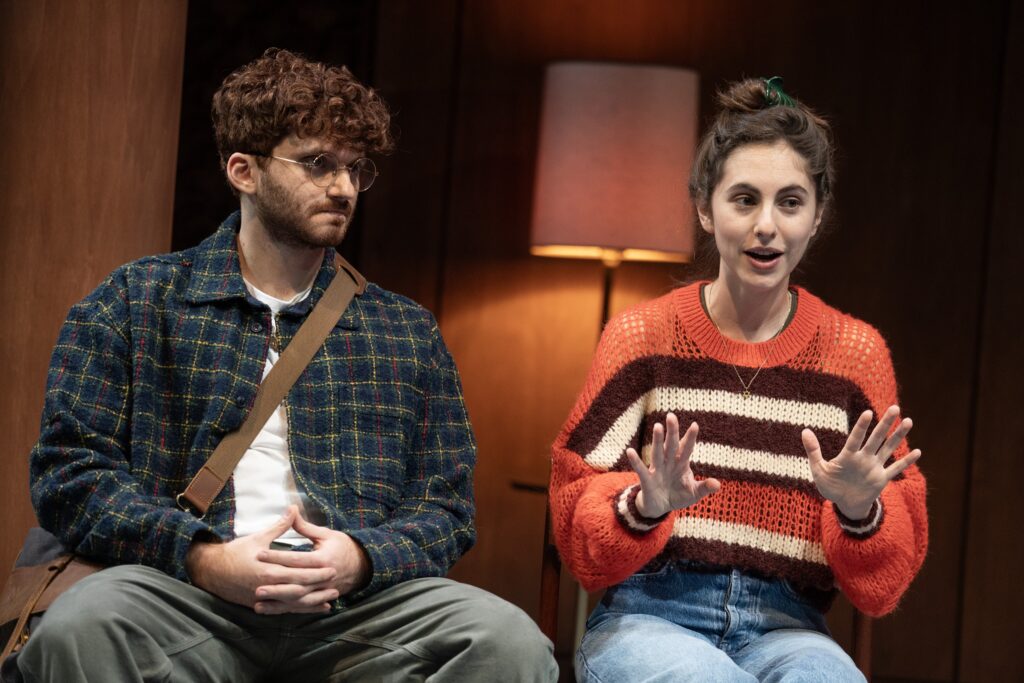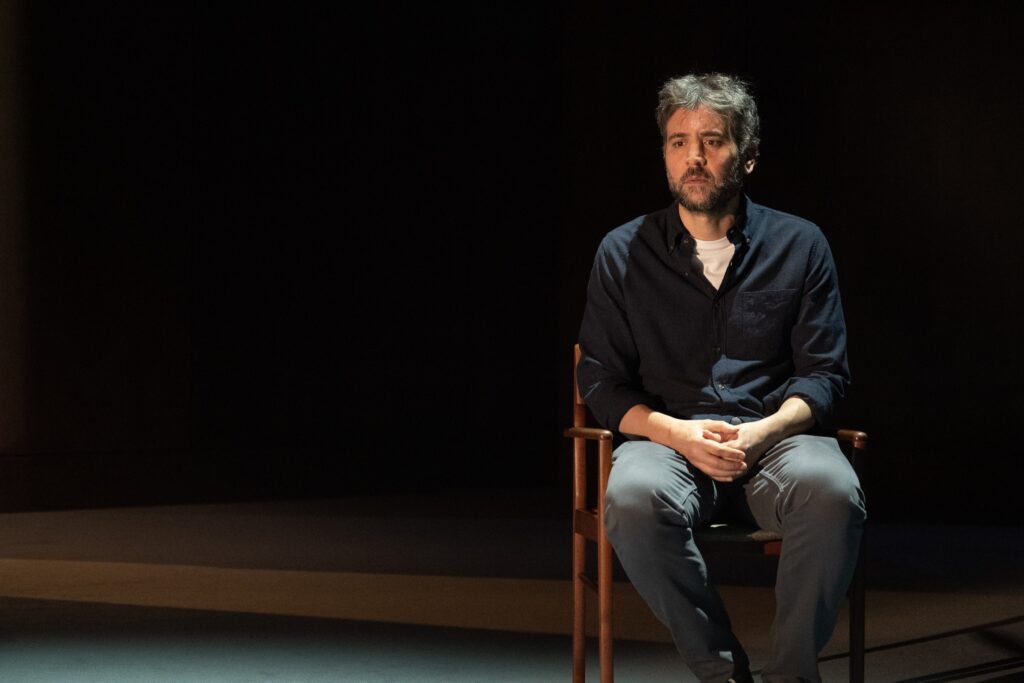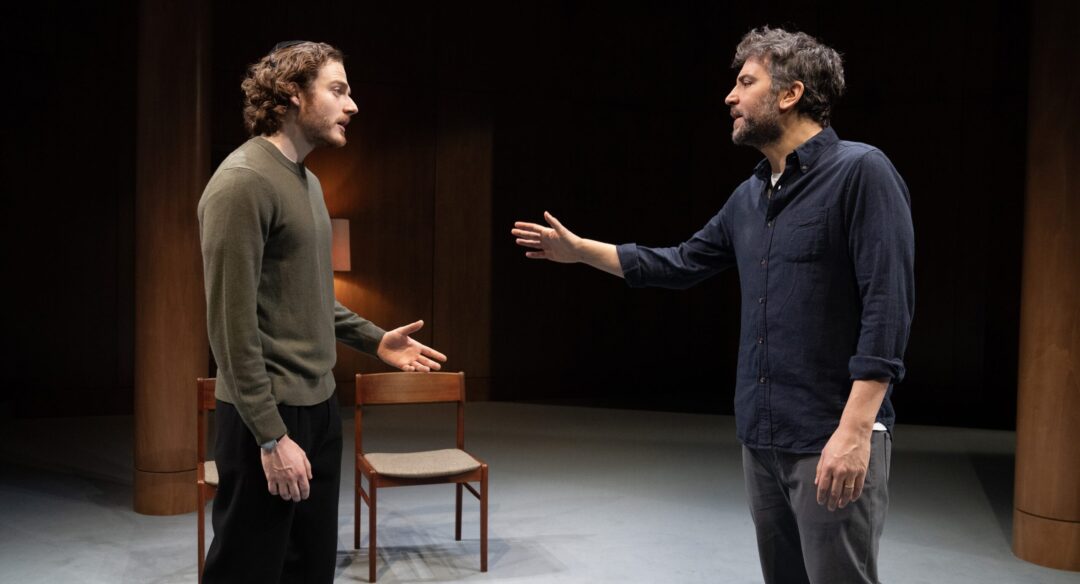Get the latest food, drinks and things to do news directly to your inbox. Subscribe Now
Watching The Ally, Itamar Moses’ play currently staged at the Public Theater, is an enraging experience.
The show stars Josh Radnor as Asaf Sternheim, a Jewish, liberal and self-defined atheist professor teaching at a non-defined university, who is asked by a former Black student, Baron Prince (Elijah Jones), to sign a manifesto seeking justice for his cousin Deronte, a victim of police brutality.
Upon reading the document, it occurs to Sternheim that its author, who happens to be his ex-girlfriend, equates what happened to Deronte to all forms of cultural subjugation while simultaneously calling for “sanctions on the apartheid state of Israel.”
“Failure to do so will leave the United States complicit in the ongoing genocide of the Palestinian people,” reads the manifesto.

A mostly silent internal battle ensues as Asaf comes face to face with a number of different characters, each one voicing the sorts of opinions and “facts” that have come to define the current world order, one where antisemitism has taken center stage.
Perhaps most shocking is the fact that Moses’ work was written before the horrors that unfolded in Israel on October 7, a historical event that led to conversations about the problem of antisemitism across American college campuses.
Moses’ dialogue thoroughly and precisely reflects the idioms of speech, provided examples and general worldviews of all parties involved: Prince’s take on being a Black pupil in a prestigious college elicited head nods all around the audience during a recent show, as did Palestinian undergraduate Farid’s (Michael Khalid Karadsheh) heartfelt monologue about the beauty of his culture and the world’s inability to protect it as he wishes they would.
Conservative Jewish graduate student Reuven Fisher (Ben Rosenfield) ends the first act with one of the most poignant and well-articulated deliberations about the current plight of the Jewish people, a speech that left many teary-eyed, while the at-times inappropriately funny student Rachel (Madeline Weinstein) represented the faction of the Jewish population openly critical of the Israeli government’s actions throughout history.

Nuances are highlighted across the board, very clearly illustrating the difficulties involved in discussing anything that has to do with the region and, yet, it’s the play’s protagonist whose opinion is constantly questioned.
Asaf never clearly states where he stands—perhaps because he doesn’t know it himself or for fear of retaliation from all other parties involved—and that is, indeed, the most maddening aspect of the production.
Sadly enough, the character’s reluctance to speak up actually points to one of the greatest issues plaguing the Jewish population: high-ranking Jews across all industries have the tendency to stay quiet when it comes to society’s at-times open antisemitism, especially when compared to their counterparts across other cultural subgroups.
From famous Jewish Hollywood players to Jewish presidents of universities all around the United States, addressing the hatred that the culture has been dealing with, especially since October 7, is not as accepted as speaking up about racism against Blacks, for example, or even Asian hate.
Most sad is the fact that Moses himself falls prey to the exact issues he sheds light on: while having so much to say, he ends up not saying anything at all by refusing to let his main character take a clear stance, one way or the other.
The Ally runs at the Public through April 7. Buy tickets here.



